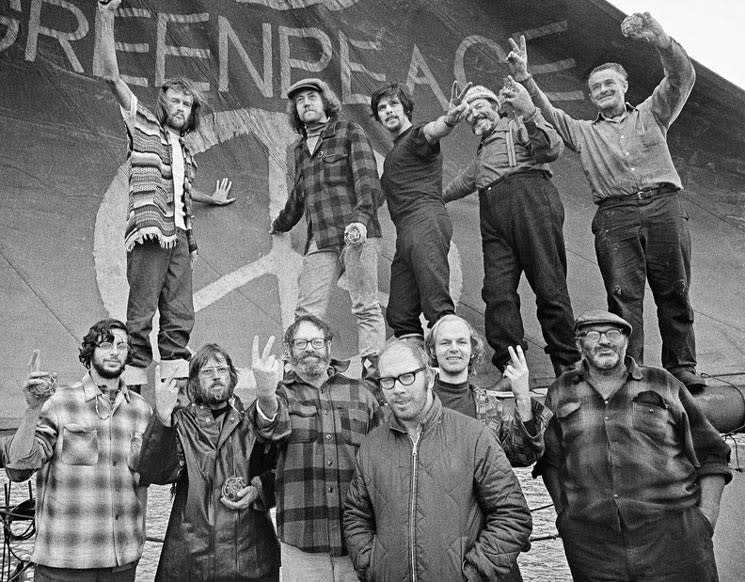While it may be tempting to look at the innumerable environmental issues facing our planet and throw your hands up in resignation at how overwhelming solving them can appear, it's somehow significantly less daunting considering how Greenpeace was formed in a basement with little more than a group of idealistic dreamers. Charting the organization from its humble origins through its rise to prominence and lasting legacy, How To Change The World is an inspiring, exhilarating and funny look at how a group of eco-warriors defied the odds to make a difference.
Greenpeace emerged from protests of America's nuclear testing program in Alaska in the early '70s. Robert Hunter, a columnist for the Vancouver Sun, was instrumental in organizing a group to sail out in a dilapidated fishing boat to try and put a halt to the experiments. Though their efforts may have failed in their eyes, they did succeed in raising global awareness, and launched an environmental movement.
Despite Hunter being a reluctant leader, the group grew exponentially in both resources and manpower, directing its increasing influence towards the inhumane practices of Soviet whaling fleets and eventually even the horrors of the Canadian seal hunt in the Maritimes. We're introduced to some of the hippies and tree-huggers who devoted their lives to the cause and are heartened to learn in their modern-day interviews that many are still determined to let their freak flag fly, like the one luxuriously-bearded man who continues to go by his adopted name of Walrus.
An abundance of stock footage allows the viewer to vicariously experience what it was like aboard the boat when the group set out to enact change through its guerrilla tactics. Hunter and his cohorts were acutely aware of how images had the unique power to implant a "mind bomb" that could then spread virally, and it's astonishing to observe how they didn't hesitate to place themselves in harm's way to get the perfect shot.
The film also doesn't pull any punches though when it comes to the organizational and financial troubles that plagued Greenpeace throughout its existence. From lawsuits to power struggles within the organization, it's apparent that not everyone saw eye-to-eye when it came to how issues should be prioritized, and one member's complete transformation over the years is downright startling. But what endures is Hunter's quixotic vision — captured in his poetic writing that's narrated here by actor Barry Pepper — which has now clearly been handed down to future generations, including his activist daughter.
(Met Film Production)Greenpeace emerged from protests of America's nuclear testing program in Alaska in the early '70s. Robert Hunter, a columnist for the Vancouver Sun, was instrumental in organizing a group to sail out in a dilapidated fishing boat to try and put a halt to the experiments. Though their efforts may have failed in their eyes, they did succeed in raising global awareness, and launched an environmental movement.
Despite Hunter being a reluctant leader, the group grew exponentially in both resources and manpower, directing its increasing influence towards the inhumane practices of Soviet whaling fleets and eventually even the horrors of the Canadian seal hunt in the Maritimes. We're introduced to some of the hippies and tree-huggers who devoted their lives to the cause and are heartened to learn in their modern-day interviews that many are still determined to let their freak flag fly, like the one luxuriously-bearded man who continues to go by his adopted name of Walrus.
An abundance of stock footage allows the viewer to vicariously experience what it was like aboard the boat when the group set out to enact change through its guerrilla tactics. Hunter and his cohorts were acutely aware of how images had the unique power to implant a "mind bomb" that could then spread virally, and it's astonishing to observe how they didn't hesitate to place themselves in harm's way to get the perfect shot.
The film also doesn't pull any punches though when it comes to the organizational and financial troubles that plagued Greenpeace throughout its existence. From lawsuits to power struggles within the organization, it's apparent that not everyone saw eye-to-eye when it came to how issues should be prioritized, and one member's complete transformation over the years is downright startling. But what endures is Hunter's quixotic vision — captured in his poetic writing that's narrated here by actor Barry Pepper — which has now clearly been handed down to future generations, including his activist daughter.
